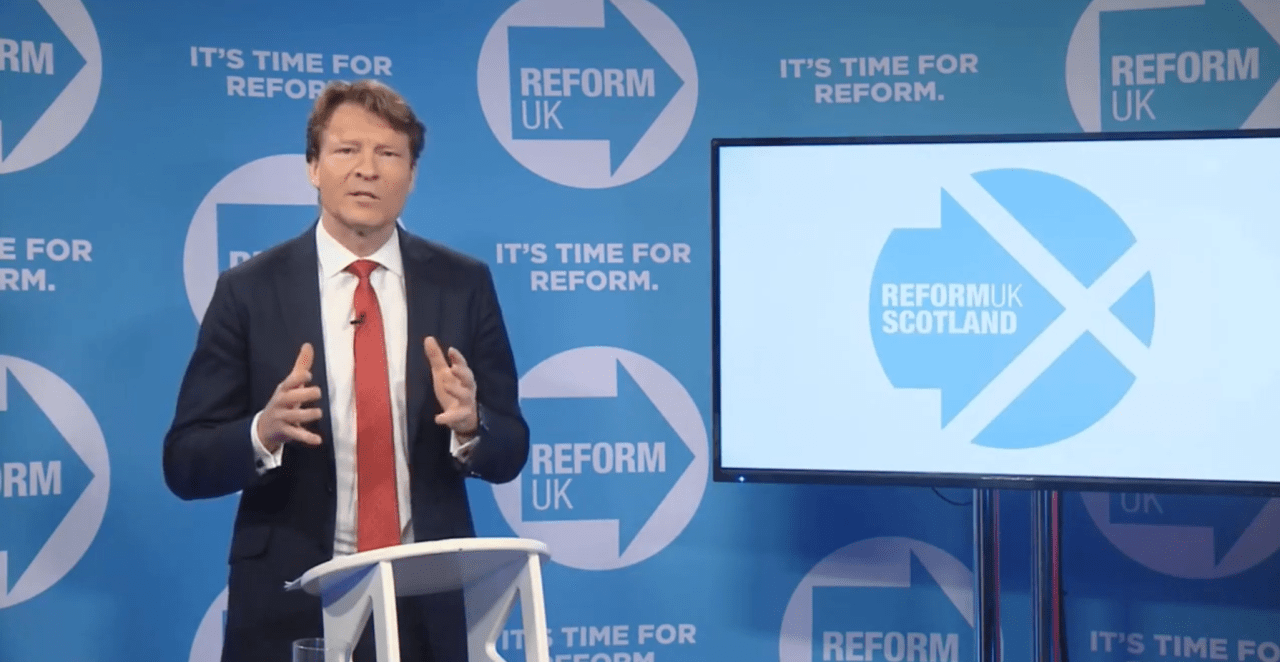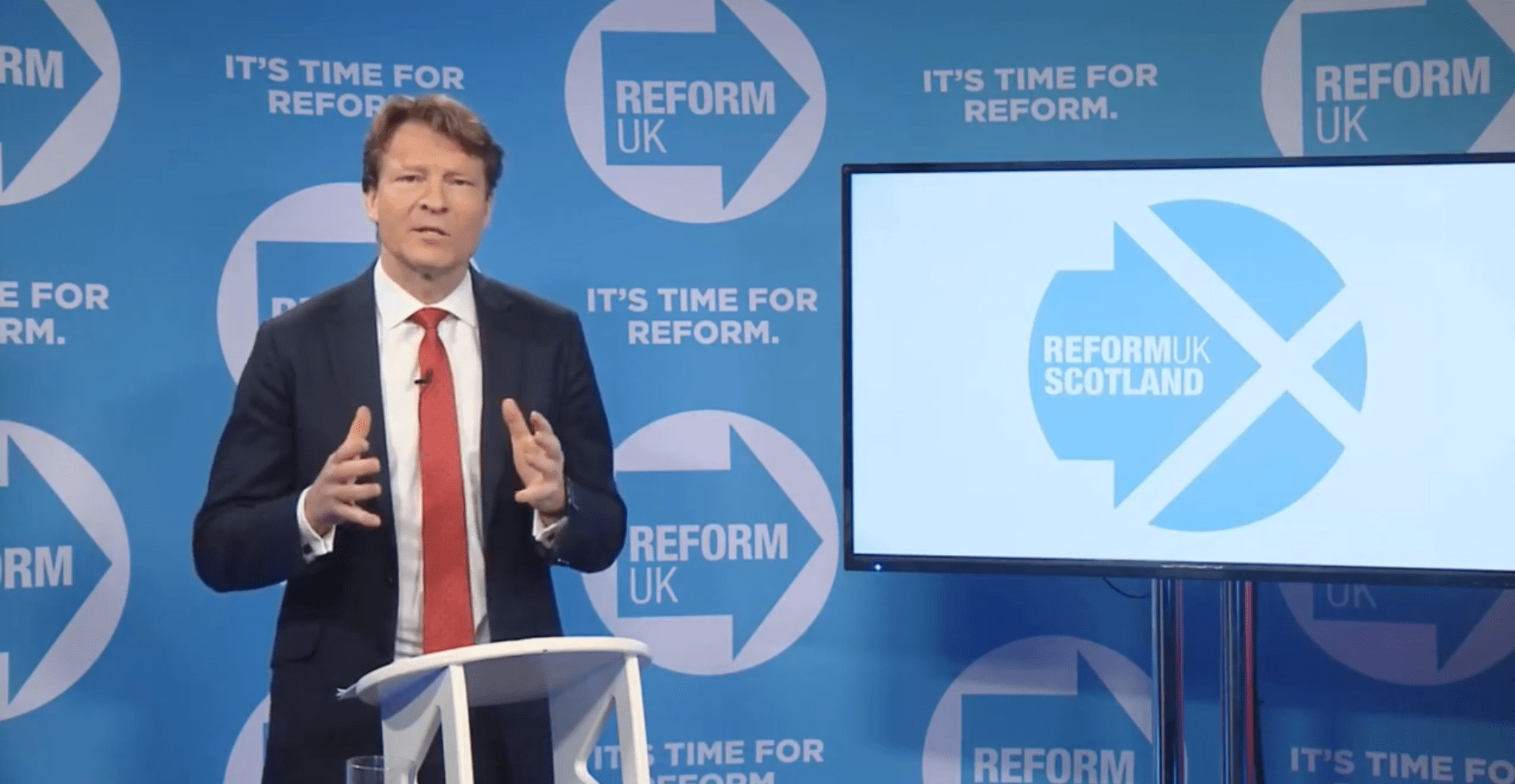Scots may be getting vaccinated against Covid, but they already have the highest rate of immunity to the appeal of Nigel Farage to be found anywhere in the UK. So it was not a particular surprise that Farage today stayed away from the launch of the Scottish offshoot of his new entity, Reform UK.
Instead it was left to party chairman Richard Tice to unveil the identity of the leader of Reform UK, Scotland. The sitting MSP Michelle Ballantyne, who stood unsuccessfully for the leadership of the Scottish Conservatives less than a year ago before going independent, has become the Scottish leader of Reform UK, without needing to win a single vote.
The good news for the party is that Mrs Ballantyne came over as sensible, credible and inoffensive, not unlike Mr Tice himself. The capture by Reform UK of a sitting member of the Scottish Parliament is undoubtedly a feather in its cap as it seeks to put together a slate of candidates for the Holyrood elections.
But did this feel like a party that is about to explode onto the Scottish political scene in a game-changing fashion? I am afraid that it did not.
The missing ingredient was pinpointed by a bloke called Terry Merton who was watching the livestream of the event and got to ask a question. Nothing distinctive stood out about the agenda set out by Mrs Ballantyne, observed Terry, before asking: ‘Where’s the silver bullet?’
And in that remark we learned that the absence of Farage had a downside as well as an advantage. The Farage political persona is compelling at least in part because it crackles with danger.
Nobody quite knows what unspeakable home truth he will dare to utter or what unlikely new cause he is about to embrace. But one thing is sure: he doesn’t do dull. Nor does he tend to go into a set-piece event without a memorable top line to deliver.
Mrs Ballantyne responded to Terry by saying that distinctive policies would be getting laid out in the next few weeks. Perhaps she thought her defection was a big enough story in its own right, and perhaps it is for now.
But equally it was notable that in his opening remarks, Mr Tice had hinted at Reform UK taking a novel approach on the biggest political issue in Scotland. An independent Scotland, said Tice, would not only be a weak Scotland but would expose the rest of the UK to unacceptable risks – both military and financial – that it ‘should not ever have to contemplate’.
It sounded like he was taking an ultra-Unionist stance that might have appealed to the niche of Scottish public opinion that regards the idea of the Tories and Labour offering up yet more concessions to the SNP as anathema, and wants no more secession without the consent of the other three nations of the Union as well.
But when Mrs Ballantyne was asked about her attitude to a second Indyref, she came up with a milksop answer: now wasn’t the time because Covid and the ensuing economic damage meant the priority was to get the country back on its feet. ‘Once we have done that, come back and talk, fine,’ she added.
This is actually a weaker stance in favour of the Union than that taken by Boris Johnson recently when he observed that the gap between the two European referendums (41 years) would be ‘about right’ in respect of Scotland too.
Mrs Ballantyne also took weaker positions than Tice on other issues – from the prospect of elections being postponed to the deal secured by Johnson on fisheries, where she told us: ‘Let’s not be too downhearted. The PM did not do an entirely bad deal.’
Given that Tice had made great play in his opening remarks about Ballantyne being in full charge of the direction of the Scottish party, one must assume that her positions will take sway over his. In which case stand by for ripples rather than tsunamis.








Comments